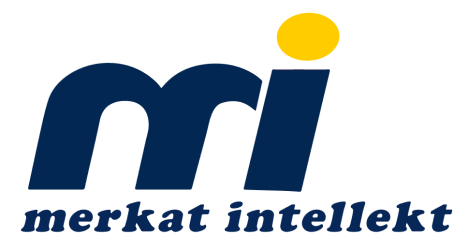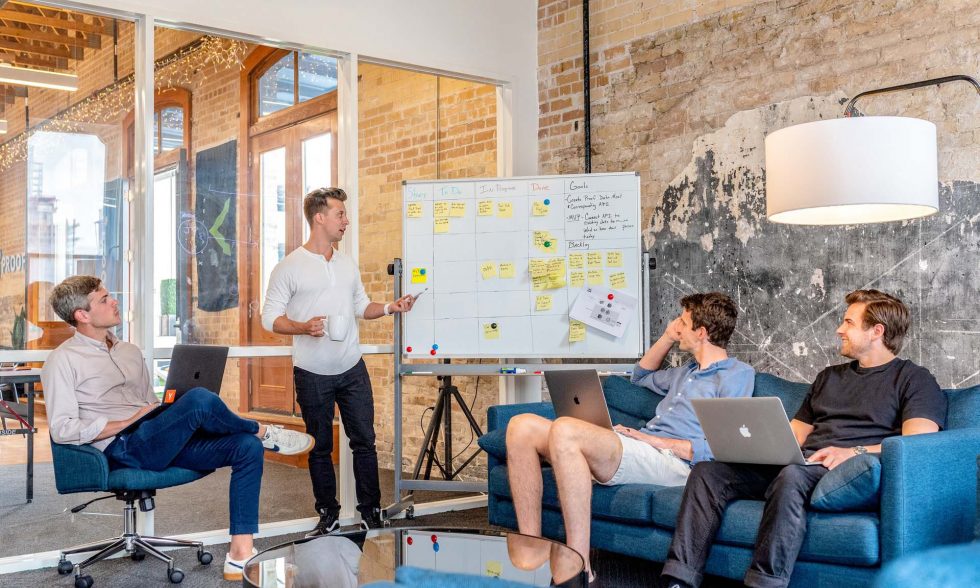Some people assume that only developers or those with technical backgrounds can build successful products, and an entrepreneur without technical knowledge cannot succeed. Many non-tech entrepreneurs with great ideas keep them to themselves because they think it’s too hard to develop a tech product.
Fortunately, this is just a popular misconception; in reality, there are many ways for someone with no coding knowledge to develop technology products. Building a startup is not all about tech – it also requires managerial, marketing, leadership, sales, and financial abilities.
There are strong data points to back you up: not even half startup founders have a tech background. Startups like Airbnb, Tinder and Alibaba are not only industry leaders in their respective niches, but they also have one thing in common: they have non-technical founders.
Check out this blog post to find out how a non-tech founder can successfully develop a tech product. You will know:
- The success ingredients to build a tech product as a non-technical person
- How to develop your prototype and MVP if you are a non-technical founder
- Top mistakes you need to avoid
- Best practices to contribute value as a non-technical founder
The Success Ingredients to Build a Tech Product as a Non-technical Founder
You can bring your excellent management skills on board. If you are not a technical person, the best thing you could do is ensure product operations are on time. For example, market research, partnerships, marketing, recruiting, monetisation, distribution, and funding. Here are many skills that constitute the success formula to contribute & grow as a non-technical founder.
Research
The most crucial building block for a successful startup is research. Flawed research will backfire at any point in time. It is advisable to carry out market validation, along with market research, to avoid poor research. The core questions one needs to research on include:
- The pain you seek to decrease/reduce
- People who will use your product
- Monetisation model
- Existing solutions research
Nail Down Design
A founder needs to know how the app or product should look. It would be best if you had a mind map or sketches for mockups of the product. You can use Figma, Balsamiq, and any other prototyping tool to show your designers what the product needs to look like. Showing always trumps telling. Picking the right tools and displaying what you want doesn’t require a tech background.
Feedback matters
Feedback is important. Be open to receiving feedback about the idea, process, plan, marketing strategy, and more. Receive feedback as early as possible and build a system where people can share their feedback. Also, give feedback constructively to improve people, processes, and performance.
Find a tech partner
It is essential to find the right partner. You can do that by networking, finding similar-minded partners/vendors on LinkedIn, reaching out to colleagues or tech wizards you know. It would help bring someone on board as a partner who could share your values and resonate in line with your thoughts.
Be agile
It would be best if you are agile. You might face challenges in startup life. You need to rethink and evaluate options to see what works for you and the company in the best interest.
How to build your prototype and MVP if you are a non-technical founder
Turning an idea into a product requires grit and determination. One also needs to validate the idea to build a prototype and an MVP. A prototype is an early sample of your product made to show if the concept is feasible. You can show it as a simple landing page to introduce your idea. You can then create the working model (MVP) to know if the product is viable. MVP or minimum viable product is the first version of the software for your customers with features that will test its development and how it works. Having an excellent technical team or partner on board will help you build your MVP. So identifying the right technical team is the key if you are a non-technical founder.
- Document your value proposition and hire a dedicated engineering team or a freelancer
- Bring a technical partner with experience in working with startups on board to save you stress and time.
While this team takes care of the technical aspects, you can take care of the non-technical aspects.
Top Mistakes to Avoid
Hiring the Wrong People
Every startup is successful only if the team believes in the vision. You need to hire based on skills, beliefs, and those who will connect with your vision. It is the drive that will keep the team’s zeal high.
Communication
Your communication needs to be clear, on point and communicable. You cannot vaguely explain what you want to get built. Have some documentation ready, have good mockups built instead of vague sketches, other interfaces for ‘replication’ and more. These are all efficient ways to communicate with the team.
Learning tech to be ‘on par.’
To build your product, you don’t need to learn to code. You might be tempted to learn to code. However, it is a waste of time and energy as you can invest your time in other things that matter while offsetting the coding bit to others.
You can learn to code if you have the interest and aptitude for it. However, doing it only to build your product can prove to be a costly mistake.
Hiring a Single Developer
One great developer might sound fantastic. But, it’s not that nice. You might think it is cost-saving, has less effort and more. But, as a startup founder, you need to know that you must not put all your eggs in one basket. Build a team, have a vision and reduce the chance of burnout.
Best practices to contribute value as a non-technical founder
- Research, create, validate
- Form long-term bonds on mutual trust
- Take care of the core non-tech parts
- Empower technical team to a large extent
- Have original thought
- Network and seek out the best talent
- Assess how the work should be delivered
- Build the product visually to make it simpler for development teams
- Give critical feedback in a careful manner
Bottom Line
Anyone with a great idea and perseverance can build a product. So make the best of the talent out there, scout for the best talent/partner, look up on LinkedIn, and build your startup. Ensure the market fit is correct, the product fit is right, and an edge is offered over competitors. The success of companies like Pinterest, Airbnb and more is proof that your idea is your most considerable capital. Start small, reach out to experienced folks, build with them, test and validate your product, and scale higher.

